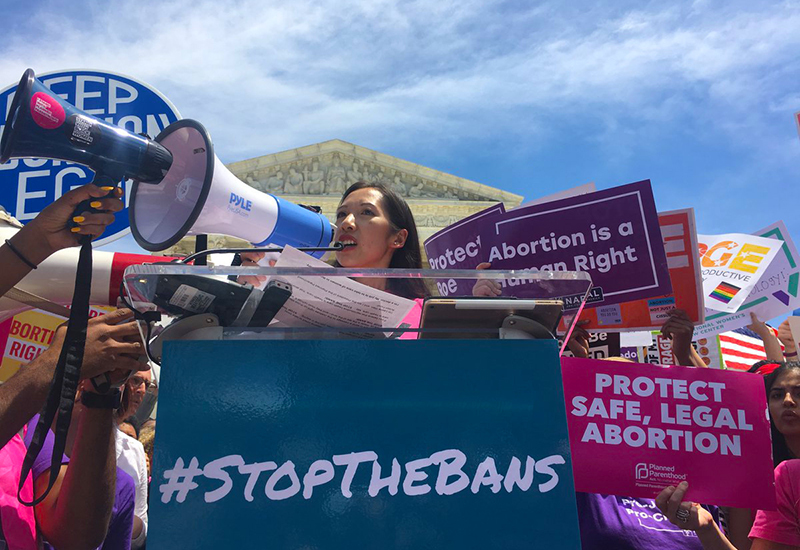
In the midst of restrictive abortion legislation being passed in Alabama, Ohio, Georgia, and other states, there is a dissonance, and according to local leaders, a tinge of fear, for what it could mean for Baltimore and the state of Maryland as a whole.
“As a city, as a state, and as a nation, we’ve made such tremendous gains with maternal mortality because abortion has been legal,” says Dr. Shelly Choo, senior medical advisor for the Baltimore City Health Department. “It’s now safe. If something were to happen where we roll back the gains and abortion becomes illegal, I am concerned and many other people would be concerned about the increase in mortality and in morbidity for families.”
It should be reiterated: A women’s right to choose is fully protected in the state of Maryland, which has legislators who support these rights and make their stances known. But restrictive laws around the country could potentially create a situation where a woman living in one state has vastly different rights under the law. “[Legislators] are going to set up a system where, depending on where you live in the country, you may or may not be able to receive healthcare,” says Karen Nelson, president and CEO of Planned Parenthood of Maryland.
Former Baltimore City Health commissioner—and current Planned Parenthood president—Leana Wen has been particularly outspoken about the dangers of these abortion bans, taking to national media outlets and political rallies to make her stance heard.
The more people find out the truth, the more they’re on our side. Americans want more healthcare, not less. We want our children to have more rights than we do-not fewer. Women are outraged & will hold you accountable. We’re in the fight for our lives. #WomensRightsAreHumanRights
— Leana Wen, M.D. (@DrLeanaWen) May 16, 2019
Yet, as the national narrative focuses on these states passing sweeping laws—which many see as a broader effort to reverse the Supreme Court’s decision in Roe v. Wade—there is uncertainty in places like Maryland. “It’s confusing when the national media is driving the conversation and something like this is lifted up so much,” Nelson says. She adds that, because of this, it is more important than ever for organizations like Planned Parenthood, as well as the Baltimore City Health Department, which shares the view that a woman has a right to choose, get their message across and provides education to women as to what their options are.
“Even with the restrictive bills that are being passed in other states, it doesn’t stop the work the clinics already provide,” Choo says. “If anything, it does strengthen the need for messaging to make sure that everyone knows that in Maryland and in Baltimore City, that services and education is still being provided as well.”
Choo worries, too, that should laws like the ones passed in Alabama and Georgia percolate across the country, it could further highlight inequities in healthcare: who has access to it and the means by which it can be accessed. “There’s an understanding that this is an equity issue as well,” she says. “These restrictive abortion laws will be disproportionately affecting communities of color and communities who are experiencing low incomes.”
Maryland officially codified its support for Roe v. Wade in 1992, and there are calls for a state constitutional amendment that further enshrines these rights, which Maryland House Speaker Adrienne Jones has supported. Organizations that advocate for abortion rights see this moment as a potential catalyst for change. Those in favor of these rights are making their stance known. Where there is anger, there is action. Rallies across the state have been held over the past few days in support of abortion rights, including one in Baltimore at the War Memorial.
“People are standing up,” Nelson says. “The general public feels that this is just going too far. We’re taking hold of the narrative and continuing to tell people where they can get services and how they can access services.”